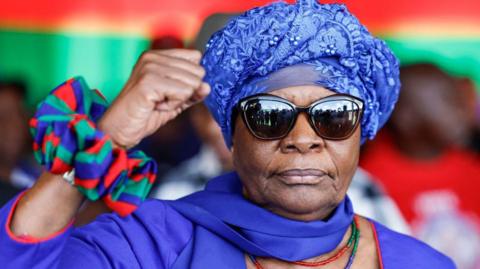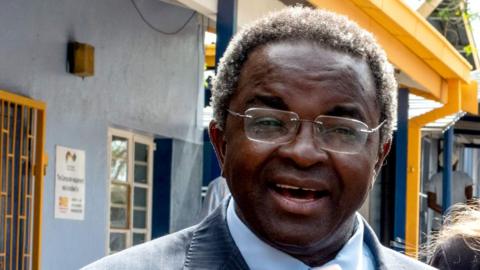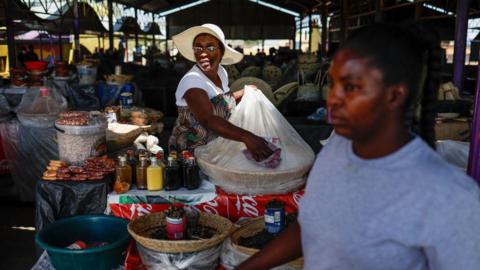If things work out as Namibia’s long-time governing party hopes, the country will be electing its first female head of state this week.
But a mood of disillusionment with liberation movements in southern Africa, coupled with the anti-incumbency feeling in many parts of the world, may pose a threat to what would be an historic achievement.
Vice-President Netumbo Nandi-Ndaitwah, 72, is the flag-bearer for Swapo, which has led the country since independence from apartheid South Africa in 1990.
Tanzania's Samia Suluhu Hassan is currently Africa's only female president, so Nandi-Ndaitwah would be joining an exclusive club if she is victorious.
Her party, totally dominant for three decades, saw a large drop in its support in the last general election. It goes into Wednesday’s vote amid an unemployment rate of 19% - almost the same as it was 30 years ago - troubled government finances, questions about corruption and high levels of inequality.
Standing in Nandi-Ndaitwah’s way is her main challenger among the 14 other candidates - Panduleni Itula of the Independent Patriots for Change (IPC) party.
She is also up against a traditional and male-dominated political culture in the country.
But she is a trusted leader of this sparsely populated and peaceful country having served in high government office for a quarter of a century.
“I have always believed in teamwork, that is what made me achieve what I have achieved,” she has said.
Known for her hands-on and pragmatic style of leadership, the vice-president is also fiercely loyal to the party, which she joined as a teenager.
At 14 she became part of the movement resisting rule from South Africa, which had governed the country – then known as South West Africa – since the end of World War One and later introduced the racist system of apartheid.


